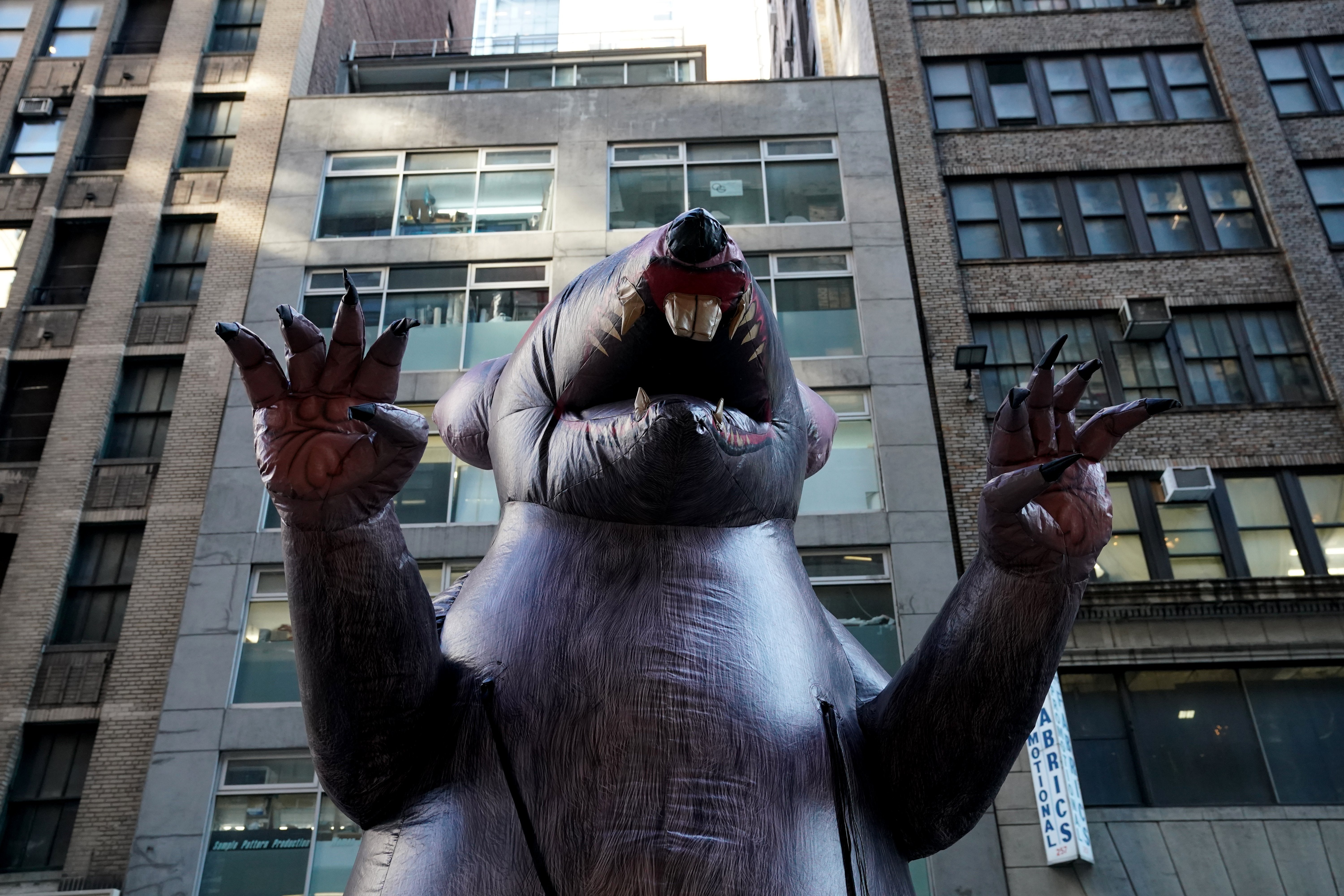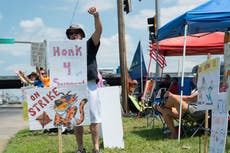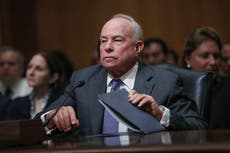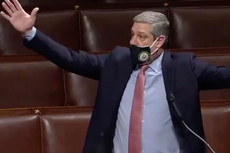Union protest hero Scabby the rat survives Trump-era legal challenge
Giant inflatable icon spared as National Labor Relations Board upholds Obama-era precedent

“Scabby” lives.
The giant inflatable rat – a beloved union icon and a ubiquitous sight on picket lines to signal labour disputes with a nearby company – has survived threat of extermination from the National Labor Relations Board, which ruled that the “12-foot inflatable rat with red eyes, fangs, and claws” and its contemporaries fall within the realm of protected speech.
Courts have long held under an Obama-era precedent that Scabby the rat can be used in public as long as the balloon animal and similar protest icons don’t obstruct entrances or rights of way.
But under Donald Trump’s administration, his appointed general counsel on the board Peter Robb argued that the display at a non-strike work site was “unlawfully coercive” and did not constitute free speech.
Labour groups argued that a decision banning Scabby could not just eliminate oversized inflatables but have an overall chilling effect on First Amendment rights at labour protests.
In a three-to-on decision on 21 July, the board sided with the International Union of Operating Engineers Local 150, which placed Scabby outside an Indiana RV trade show in 2018 after it accused MacAllister Machinery of unfair labour practices.
The union was protesting Lippert Components, a supplier to MacAllister, which Mr Robb had argued was a third party unrelated to the union dispute and a victim of its “confrontational, threatening and coercive” tactics.
Courts “have consistently deemed banners and inflatable rats to fall within the realm of protected speech, rather than that of intimidation,” board chair Lauren McFerran wrote. She was joined by two Republicans in her decision.
“Indeed, the Supreme Court has repeatedly held that other confrontational – and far more offensive – forms of expressive activity are within the protection of the First Amendment,” wrote the board’s two Republican appointees.
“Surely, if the First Amendment protects this conduct” – including flag burning and other demonstrations – “prohibiting an inflatable rat and stationary banners shaming a secondary employer would raise significant constitutional concerns,” they wrote.
Local 150 – which pioneered the use of Scabby rats – praised the decision.
Banning Scabby was Mr Robb’s “pet project, and his arguments have been rejected everywhere they’ve been made,” Local 150 communications director Ed Maher told CBS News.
President Joe Biden fired Mr Robb after he refused to resign following his inauguration on 20 January.
Join our commenting forum
Join thought-provoking conversations, follow other Independent readers and see their replies
Comments




Bookmark popover
Removed from bookmarks